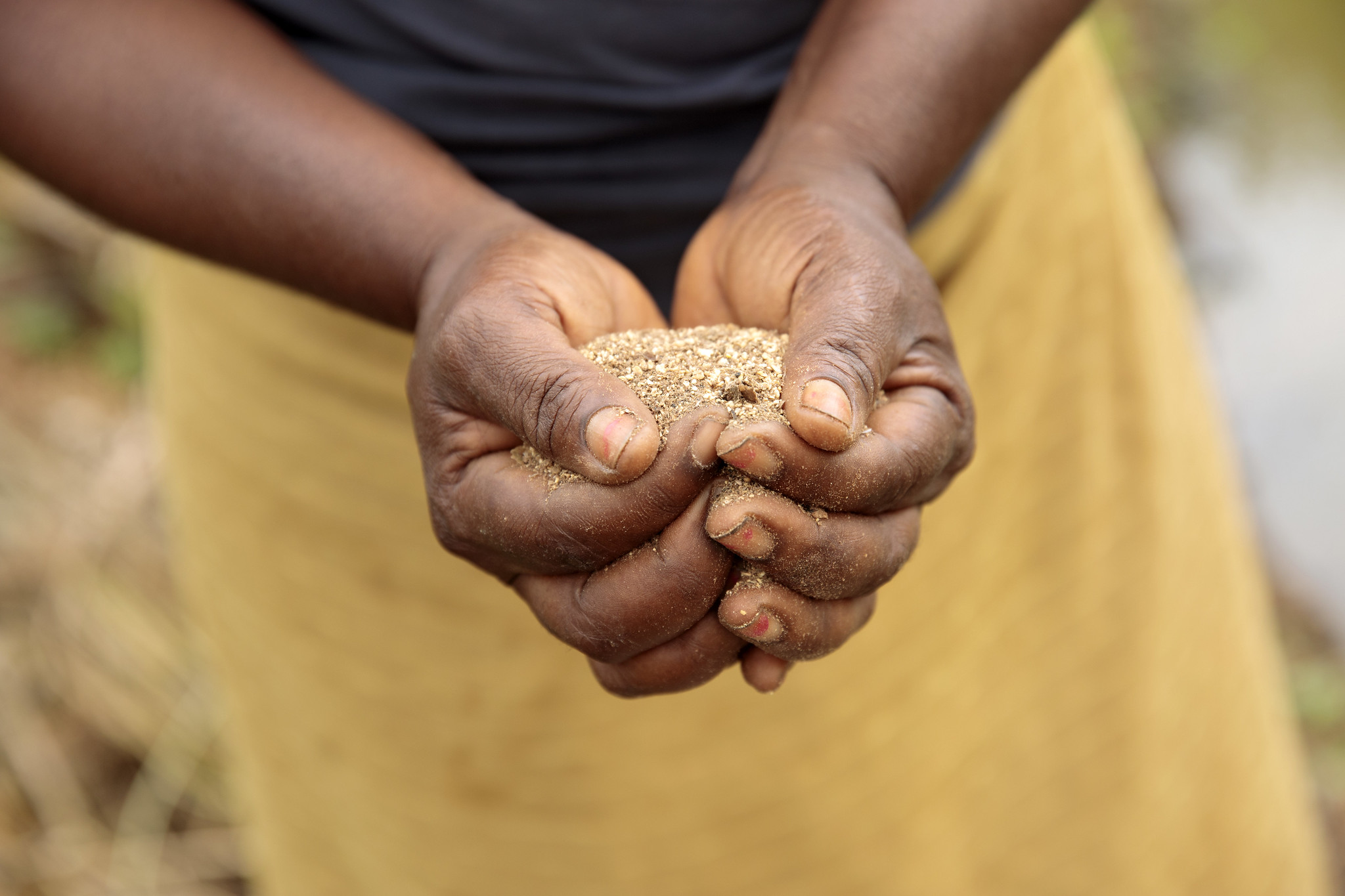For land governance interventions to be equitable and sustainable, the role of women must be actively brought to the forefront. But, how do you do this? How do you measure this? These are questions posed within the LAND-at-scale program.
LAND-at-scale, a land governance support program financed by the Dutch Ministry of Foreign Affairs and managed by RVO, the Netherlands Enterprise Agency, currently has projects in 14 countries underway. Women’s land rights are a critical component across all projects in the LAND-at-scale program. But the program aims to be more than gender aware, and to strive for the projects to be gender transformative. In order to delve into what this means and how to apply and measure gender transformative approaches in the LAND-at-scale program, we organized a webinar bringing together project partners to discuss the relationship between women’s land rights and monitoring systems in land programs.
Naomi Shadrack, a women’s land rights expert from Oxfam International and leading thinker on gender transformative approaches, gave a visionary keynote speech, sharing her perspective and experiences on this issue. She explained the concept of Gender Transformative Leadership as an approach to securing women’s land rights through focusing on structural changes that transform power relations and structures and support women to realize their leadership potential in accessing, controlling, managing and owning of land and land related resources. It is a process that starts with personal change by allowing land practitioners to think transformatively, and to facilitate the transformation of the architecture of power within institutions to deliver women’s land rights.
“When we want to achieve Transformative Leadership on women's land rights, we have to know that women land rights is a human right. Women’s land rights helps women to access other rights such as right to food, rights to shelter, identity, food security, but also women land rights helps women to obtain gender equality,” said Naomi Shadrack.
“Transformative Leadership for women's land rights helps us to meaningfully consult women throughout the process of the project. From the beginning of the project, it helps us to respect the dignity of people through Transformative Leadership, as we look at our own politics and practices of power to make sure that the way we are implementing the project respects the dignity of people we are working with,” she emphasized.
Naomi Shadrack noted that a gender transformative approach goes beyond interactions between men and women, and that activities seek to address women's strategic gender needs and tackle structural inequalities across programs. To make it easier to fulfill existing gender-based roles, activities aim at changing behaviors and attitudes to transform the position traditionally held by women, men and other genders within a specific program. In order to do this, resources are allocated to build capacity and increase representation of women in leadership positions to increase their decision making power, control of resources, and to mitigate any risks that might arise.
“Transformative Leadership for women's land rights will challenge power and people who hold power, and not everyone will be happy for their power to be challenged,” said Naomi Shadrack. “Making sure that power is shared with all stakeholders throughout the project and that women are in the driver’s seat is the intended objective. Transformative Leadership for women's land rights is sustainable because its impacts will go beyond the LAND-at-scale projects,” she suggested.
The webinar then had three breakout sessions, one bringing together Francophone participants, one focused on access to justice, and one focused on land administration.
The Francophone group determined that the most important priority is to integrate women in local decision-making bodies and to mobilize and sensitize men to accept this approach. Additionally, they underscored the need to change mindsets, and to develop measurable indicators of progress within the project period for monitoring this change.
The group focusing on access to justice suggested measuring transformative change by the percentage of key stakeholders that experience barriers to land justice and the percentage of women that have influence on decision making processes. The group agreed on the importance to dig deeper and focus on agency and the voice of women.
The land administration group highlighted the commonalities among countries, both in terms of the challenges that women face and how to overcome them. Gender discrimination is often linked to customary norms, and it can be difficult to challenge behaviors that are rooted in a cultural mindset. Government and local leaders must therefore act as an ally in promoting women’s land rights.
Key takeaways from this session were that we need to work with women and ask them what they want before starting project implementation. Crucially, behavioral change is essential to guarantee results, and this requires the sensitization of both women and men. Finally, finding ways to measure success within the project period remains a challenge, though Oxfam’s experiences provide guideposts that can be replicated for the LAND-at-scale program.



